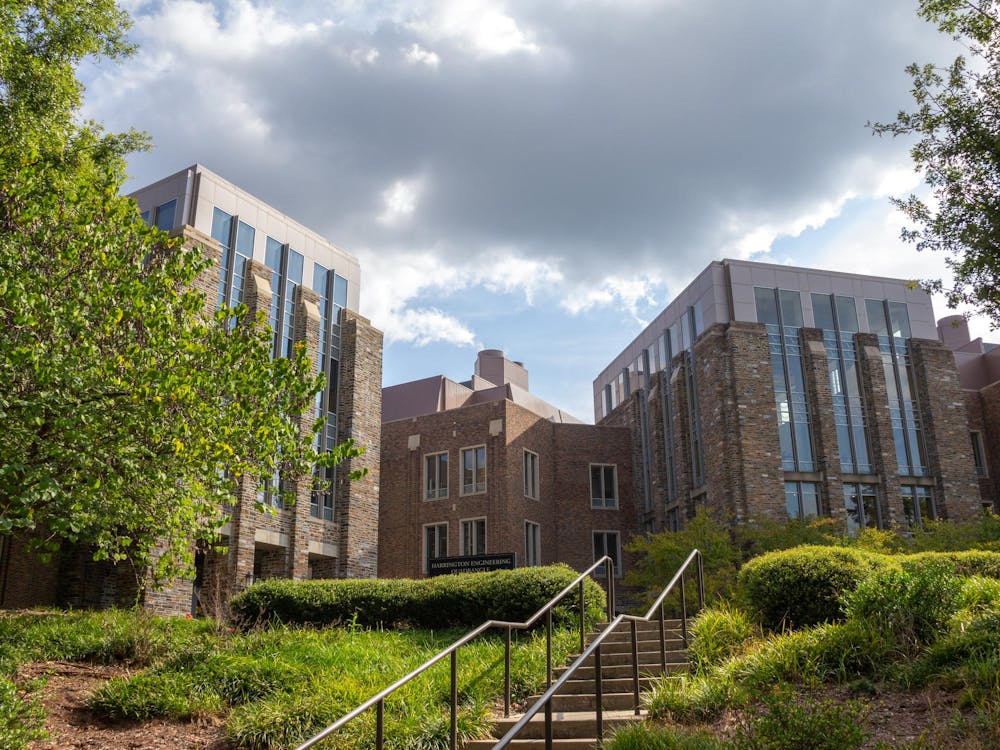While many Duke researchers have long been engaged in innovative research at the intersection of health care and modeling technology, the University is now investing more intentionally in this field.
Duke’s biomedical engineering department announced the creation of a new Center for Computational and Digital Health Innovation that aims to increase student involvement in research to “revolutioniz[e] health care” in a Sept. 23 email to biomedical engineering undergraduates.
Amanda Randles, Alfred Winborne and Victoria Stover Mordecai associate professor of biomedical sciences, will serve as the center’s founding director and lead its efforts to apply “data-driven approaches to enhance disease diagnosis, treatment and prevention.” Randles expressed excitement about the opportunity for students to get involved in computational research.
“We're trying to find ways to connect students with available research topics and areas they may not know are happening, but then also [to] just directly talk to each other about helping with research,” she said. “… We want people to feel empowered to join.”
Randles stated that University researchers focused on computational work for health and medicine have not always received much recognition for their studies.
“If you go outside of Duke and try to think of who's really good on the biomedical side and the computational side, Duke isn't always what we think about,” she said. “We wanted to find a way of … getting that out — the message out — so they know what's happening here.”
According to the email, the center’s initiatives include monthly virtual seminars, community building through “coffee hours” and training programs for students, postdoctoral fellows and medical professionals.
Fifth-year doctoral candidate Cyrus Tanade, who works in Randles’ lab, emphasized the value of promoting undergraduate involvement with diverse research topics such as medical forecasting — using data-driven technologies to predict future health outcomes.
“I highly, highly recommend that people explore research options in undergrad,” he said. “… You might think that you're interested in solving ‘x’ problem, but once you actually do it, your mind can change pretty quickly.”
Randles’ lab is not the only group at Duke innovating within the biomedical industry with medical forecasting technologies.
She highlighted the work of several assistant professors within the biomedical engineering department, including Jessilyn Dunn, who is developing new tools and infrastructure for the creation of patient-specific disease detection and intervention methods, and Daniel Reker, who uses machine learning to develop personalized therapies. Randles also pointed to Pranam Chatterji, who is integrating AI technology into therapeutic program development, and Timothy Dunn, who applies machine learning technology to addressing neurological issues.
Randles added that David Yung Ming, associate professor of pediatrics and population health sciences, has worked to develop prediction models for identifying children with complex health needs who are at risk for hospitalization.
Duke’s forecasting and modeling research has also been used by outside organizations to develop new health-focused technologies, including TruDiagnostic — a health data and epigenetics company that produces biological age kits featured in TV series “The Kardashians.” The company, which now leverages one of the largest private DNA methylation databases in the world, was created in partnership with institutions including Duke, Harvard University and Yale University to offer comprehensive measures of biological age to consumers worldwide.
As medical treatment and research rely more heavily on prediction and modeling, Randles is optimistic about the potential benefits the new center and increased medical forecasting research will offer for the health care industry.
“We can actually shift from a reactive care to … doing something that is proactive, because we can use these remote monitoring options to identify that they’re going to have a problem before they have the problem,” she said. “I think that’s really exciting and needed.”
Get The Chronicle straight to your inbox
Sign up for our weekly newsletter. Cancel at any time.
Chloe Joy Chang is a Trinity sophomore and a staff reporter for the news department.

